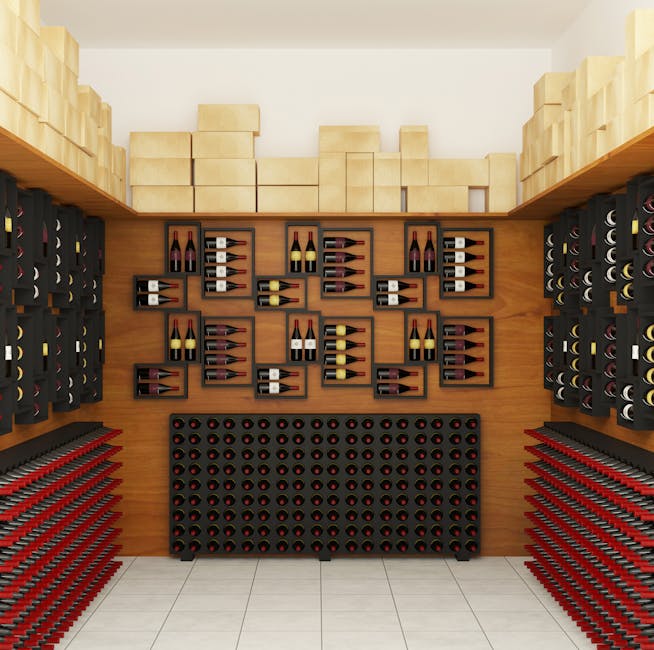Wine Inventory Management: How to Protect and Grow Your Wine Investment
Importance of Wine Inventory Management
Managing your wine inventory is crucial in protecting and growing your wine investment. By keeping track of your wines, you can ensure they are stored properly, prevent any spoilage, and know when to drink them at their best. Proper inventory management also helps you keep an accurate record of your collection, allowing you to make informed decisions about buying and selling wines. Ultimately, effective wine inventory management is essential for safeguarding the value of your wine assets.
Key Factors for Protecting Your Wine Investment
When safeguarding your wine investment, key factors to consider include proper storage conditions. Wine should be kept in a cool, dark place with stable temperatures to prevent spoilage. Consistent humidity levels are also crucial to maintain the quality of your wine. Additionally, protecting your wine from light exposure is essential, as UV rays can degrade the flavors over time. Maintaining an organized inventory will help you keep track of your collection and ensure each bottle is accounted for.
Understanding Wine Storage Conditions
Wine is sensitive to light, temperature, and humidity, so storing it correctly is essential to maintain its quality. Here are key aspects to consider for ideal wine storage:
- Light: Keep wine away from direct sunlight to avoid spoiling its flavor.
- Temperature: Store wine in a cool, consistent temperature to prevent premature aging.
- Humidity: Maintain a humidity level of 50-80% to keep corks from drying out and allowing air into the bottle.
Implementing Proper Inventory Tracking Systems
To protect and grow your wine investment, it’s crucial to have proper inventory tracking systems in place. This allows you to keep track of your wine collection accurately and efficiently. By implementing a system that tracks factors like the type of wine, the quantity, purchase dates, and storage conditions, you can ensure that your investment is managed effectively. Proper inventory tracking also helps prevent the loss of valuable wines due to spoilage or theft.
Tips for Growing Your Wine Investment
To grow your wine investment, consider these tips:
- Store your wine properly: Invest in a wine fridge or cellar to maintain the right temperature and humidity levels.
- Track your collection: Keep a detailed inventory of your wines, including purchase dates and prices.
- Invest in quality wines: Focus on wines with proven track records for increasing in value over time.
- Attend wine tastings and events: Network with other enthusiasts and learn about new investment opportunities.
- Consult with wine experts: Seeking advice from professionals can help you make informed decisions on purchasing and selling wines.
- Stay informed: Keep up-to-date with market trends and developments in the wine industry to make strategic investment moves.
Leveraging Technology in Wine Inventory Management
Technology has made managing wine inventory easier and more efficient. By using specialized software and apps, wine enthusiasts can track their collection, monitor inventory levels, and ensure the proper storage conditions. Additionally, technology allows for quick access to information about each bottle, such as its purchase date, price, and drinking window. Barcode scanners and cloud-based solutions are handy tools that streamline the inventory process and help prevent errors. Overall, leveraging technology can enhance the protection and growth of your wine investment.
Risks and Challenges in Wine Investment
Investing in wine comes with its fair share of risks and challenges. Here’s what you need to know:
- Market Volatility: The value of wine can fluctuate based on factors like global economic conditions, changes in consumer tastes, and even natural disasters affecting wine-producing regions.
- Counterfeiting: Unfortunately, the wine industry is not immune to counterfeit products. It’s crucial to authenticate the heritage and provenance of the wines you invest in.
- Storage Conditions: Proper storage is essential for maintaining the quality and value of your wine collection. Factors like temperature, humidity, and light exposure can all affect the wine’s condition.
Summary and Best Practices
Understanding how to manage your wine inventory is essential to safeguarding and increasing the value of your wine collection. Proper organization and storage conditions can prevent spoilage and ensure your wines reach their full potential over time. Some best practices to follow include maintaining detailed records of your wine purchases, tracking wine storage conditions such as temperature and humidity, investing in suitable wine storage solutions like wine racks or cellar storage, and periodically assessing your collection for any issues or gaps in inventory. By implementing these strategies, you can effectively protect and enhance the value of your wine investment.



